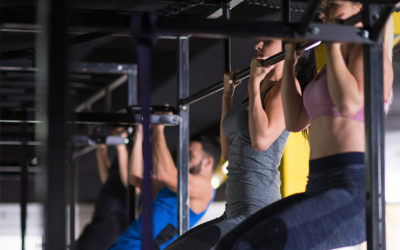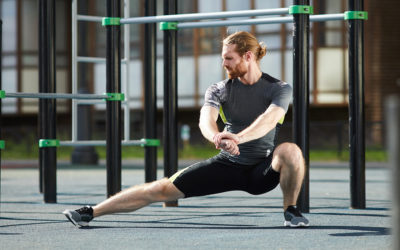Health Topics
Time Under Tension
Time under tension (TUT) refers to the amount of time a muscle is held under tension or strain during an exercise set. During TUT workouts, you lengthen each phase of the movement to make your sets longer. The idea is that this forces your muscles to work harder and...
Pre-exhaust Strength Training
Pre-exhaust training is a strength training concept which was designed to fully stimulate larger body parts that might otherwise be held back by relatively weaker body parts during multi-joint movements or compound exercises. For example, if you were to do a pressing...
Shoulders
THE DELTOIDS ‘Delts’ are teardrop shaped and have three parts, anterior, medial and posterior. They control the flexion, abduction and extension of the humerus. ROTATOR CUFF Made up of four muscles (see below) – the supraspinatus, infraspinatus, teres minor and...
Indoor Cycling and Spin Session
A spin class is a high intensity cycling workout that generally takes place on a stationary machine with a heavy, weighted flywheel that is linked to the pedals. Most spin classes last for around 30-50 minutes; it’s rarely necessary for them to be any longer and...
Why You Should Stretch
Flexibility exercises (Stretching) stretch your muscles and can help your body stay flexible. These exercises may not improve your endurance or strength, but being flexible gives you more freedom of movement for other exercise as well as for your everyday activities....
Post-exhaust Strength Training
Post-exhaust training method basically involves a compound exercise followed by an isolation exercise. An example of this is a chin up paired with a straight-arm press down (to further fatigue the lats) or biceps curl (to further fatigue the arms). The idea behind...
Chest
The chest forms part of a larger group of “pushing” muscles in the upper body and is made up of three muscles: pectoralis major, minor and the serratus anterior. PECTORALIS MAJOR This is the larger of the chest muscles and is responsible for adduction of the arms,...
Super Set Strength Training
The concept of a superset is to perform 2 exercises back-to-back, followed by a short rest (but not always). This effectively doubles the amount of work you are doing, whilst keeping the recovery periods the same as they are when you complete individual exercises....
Why You Should Do Mobility Training
It combines mobility exercises that increase the range of movements and motions your body can perform. These include flexibility, but also balance, pliability and strength. The full combination is the best way to avoid injury. Mobility is “proprioception” – our...
Abductors and Adductors
Abductors This group of muscles are responsible for hip abduction (moving the leg away from the midline of the body). They also help with rotation of the leg at the hip joint and are necessary for being able to remain stable when walking or standing on one leg. In...
Health and Well-being Pack
Easy health, well-being and nutritional tips to help you lead a healthier life.









